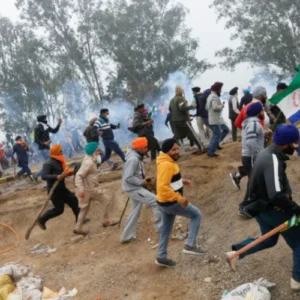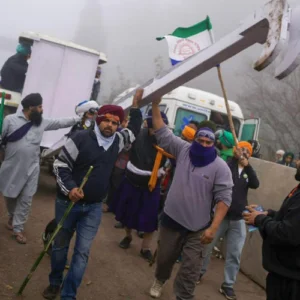Indian police used tear gas on Wednesday to disperse a renewed push by protesting farmers towards the capital, New Delhi. This comes after talks between the farmers and the government failed to reach a resolution on crop price guarantees, highlighting the ongoing struggle for agricultural reforms in the country.
For months, farmers from primarily northern states like Punjab and Haryana have been demanding minimum support prices (MSPs) for their crops. They argue that current market prices fall below production costs, making their livelihoods unsustainable. In 2020, a similar protest culminated in a year-long encampment on the outskirts of Delhi before the government agreed to suspend three new farm laws, partially alleviating some concerns. However, farmers feel further reforms and concrete MSP implementation are still needed.

This week, with negotiations stalling, thousands of farmers embarked on a "Delhi Chalo" ("March to Delhi") movement. Police deployed heavily at border points, erecting barricades and deploying security personnel to prevent their entry. Drone-dropped tear gas and water cannons were used to deter farmers wielding sticks and stones. Despite the efforts, farmers remain determined, with some using tractors and heavy machinery to breach barricades.
The situation raises concerns about escalating violence and the plight of India's vast agricultural sector. While the government remains open to talks, farmers seem unwilling to relent without concrete solutions. Opposition parties accuse the Modi government of neglecting farmers' concerns and prioritizing corporate interests.
Potential consequences of the situation include:
- Disruption of essential supplies: Protests can affect the transportation of agricultural goods, impacting food prices and availability.
- Further economic strain: The agricultural sector forms a significant part of India's economy, and prolonged unrest can have broader economic consequences.
- Political instability: Farmer protests can escalate political tensions and pose a challenge to the current government.
The upcoming weeks will be crucial in determining the resolution of this standoff. Whether meaningful dialogue emerges or the situation further escalates will hinge on the willingness of both sides to find common ground and address the underlying concerns of Indian farmers.

